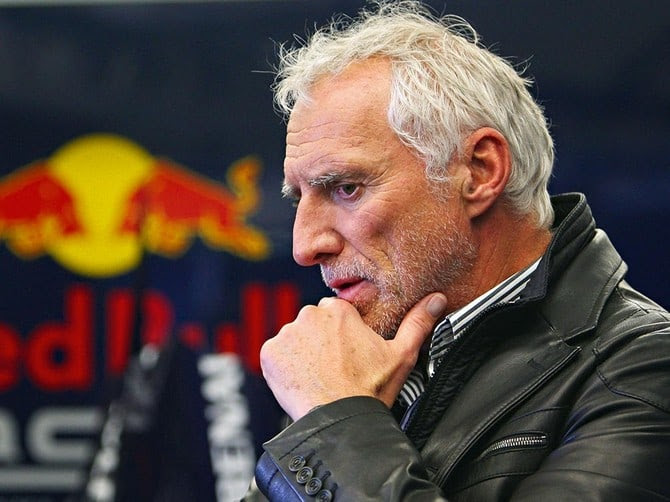He was described as the “most famous unknown” in Austria, Dieter Mateschitz was one of the richest people in the country – according to Forbes magazine, worth €25 billion, who used his phenomenal wealth as the marketing genius and co-owner of Red Bull to build a powerful sporting and media empire.
His death at age 78 has left the Austrian public seeking a better picture of a man whose impact on society has spanned the better part of 25 years. Yet, even more questions about his life have emerged since the announcement of his passing was mysteriously kept secret for two weeks.
From toothpaste employee to energy drink giant
In the 1980s, as a representative in Thailand working for a toothpaste company, he became familiar with the energy drink market, later showing his genius for marketing. Together with his Thai partners from the Yoovidhya business clan, he successfully marketed the Red Bull drink, which contained huge quantities of caffeine and sugar, to achieve worldwide success.
Along with the popular tins of Red Bull, which quickly made him wildly rich, he also cashed in on the early 2000s urban middle-class lifestyle that was in vogue at the time. He invested heavily in sports projects that also promoted his drinks, owner a successful Formula 1 racing team and sponsored large-scale air shows.
In addition to hotels and restaurants, Mateschitz also founded several media companies including the TV station Servus TV, Servus Magazine, the research platform Addendum, and the Red Bulletin. When a works council at Servus TV was to be formed at the station in 2016, “Didi” (as he was known colloquially) immediately threatened to close it down, which prompted the staff to back down.
He later shut down the media platform Addendum without warning.
A harsh critic of Europe and political correctness
In 2017, the media-shy Mateschitz gave a rarely granted interview to the Kleine Zeitung, in which he outed himself as a Trump admirer. He criticized the “dictates of the politically correct” by an “intellectual elite,” which he said was ideologically aligned with the Left.
He was harshly critical of Europe’s “failure to cope with the wave of migrants” in 2015. And although he profited handsomely from the EU single market – the EU Commission even pushed for the approval of Red Bull in France, where the secret formula was deemed a health hazard – Mateschitz was a harsh critic of the EU and was a vocal advocate of Euroscepticism through his media outlets.
Mateschitz was accused by Austria’s Leftists of openly providing public forums for right-wing media and political figures, and – according to a Viennese journalist who proposed to write a book about him – even threatened to use hired Russian hitmen to physically assault him.
Servus TV has, indeed, devoted much of its recent airtime to reports from COVID vaccination skeptics and an increasing number of fringe conspiracy theorists, which included the station’s director, Ferdinand Wegscheider. Martin Sellner, the leader of the far-right Identitären movement and a key figure in the New Right in Germany, who had previously been denied entry into the US and UK for his extremist views, was a frequent guest on Servus TV’s talk shows.
Mateschitz liked to cultivate an image of a philanthropist buy taken control of and renovating old hotels and inns in Austria’s northern Ausseerland region and around the Formula 1 circuit that he helped revive in the town of Zeltweg, which was named after Red Bull.

The private TV channel Puls 4, one his rivals, recalled in its own obituary for Mateschitz an incident that involved profil business journalist Michael Nikbakhsh. When Nikbakhsh proposed to write his biography, Mateschitz told him that he would no longer be safe “as long as a kneecaping only costs $500 using hitmen from Moscow”. Mateschitz later apologized, but the threat revealed his cutthroat character.
Journalist Wolfgang Fürweger, who wrote the first biography about Mateschitz – The Red Bull Story. The Incredible Success of Dietrich Mateschitz – was banned by Red Bull, despite the fact that he presented a positive image of both the company and Mateschitz. According to those who knew of the incident said at the time, “Mr. Mateschitz couldn’t control the content. The lack of control just doesn’t sit well with him and his people.”
Prior to his death, the seriousness of his health condition was kept secret. Even the news of his death was kept from the public for nearly two weeks after his passing at the beginning of October.
Mateschitz’s estate will most likely be shared by his 39-year-old partner, Marion Feichtner, and his 29-year-old son from a previous relationship. Since the inheritance tax has been abolished in Austria, they can look forward to a tax-free inheritance.








